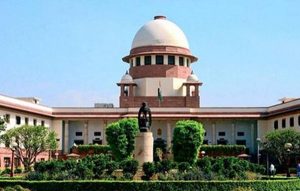 In a landmark ruling with wide-reaching implications for businesses across India, the Supreme Court on Monday, May 19, upheld the Gujarat High Court’s decision allowing the use of the Electronic Credit Ledger (ECL) which contains accumulated input tax credit (ITC) to make the mandatory pre-deposit required for filing an appeal under the Goods and Services Tax (GST) law.
In a landmark ruling with wide-reaching implications for businesses across India, the Supreme Court on Monday, May 19, upheld the Gujarat High Court’s decision allowing the use of the Electronic Credit Ledger (ECL) which contains accumulated input tax credit (ITC) to make the mandatory pre-deposit required for filing an appeal under the Goods and Services Tax (GST) law.
The decision comes at a time when businesses have already been clamouring for reforms in the usage of ITC, seeking urgent attention from the government over allowing businesses to use accumulated ITC for various payments under the GST regime, this being one of the demands.
The Supreme Court in a matter between the Revenue Department and Yasho Industries, who are global manufacturers and suppliers of specialty and fine chemicals, dismissed the Special Leave Petition (SLP) filed by the Revenue Department, affirming that Section 107(6) of the CGST Act does not restrict the mode of pre-deposit payment to cash alone.
Mumbai-based Yasho manufactures performance chemicals for industries as diverse as rubber and latex, food and flavours, perfumery, lubricants and other specialty applications since 1993.
What was the case about?
The controversy centered on whether the 10% pre-deposit required to admit an appeal under Section 107(6) of the CGST Act could be paid using the ITC available in the ECL or whether it must be strictly paid in cash through the Electronic Cash Ledger. The Gujarat High Court had ruled in favor of the assessee, and with the Supreme Court’s dismissal of the revenue’s challenge, the legal position is now settled in favor of taxpayers.
During the arguments before the apex court, Yasho Industries’ counsel, Abhishek A Rastogi, argued on the basis that key provisions such as Section 49(4) of the CGST Act allow the use of ECL for making “any payment towards output tax.”
Rule 86(2) of the CGST Rules, supports debiting the ECL for discharging liabilities in accordance with Section 49. Circular No. 172/04/2022-GST, while restrictive in paragraph 7, does not classify pre-deposit as a penalty or interest, keeping it outside the bar.
Rastogi further noted that this ruling serves as a crucial precedent to prevent narrow administrative interpretations from overriding the taxpayer-friendly framework that the GST regime was meant to establish.
After hearing the matter, the Supreme Court, during the oral hearing and in its final pronouncement, noted that the pre-deposit is merely a procedural requirement for filing an appeal, the funds in the ECL are already in the custody of the government and utilising them does not impact revenue collection.
It is understood by the experts that this ruling would apply to pending matters involving major companies, including Flipkart and others who have been contesting on similar lines and could act as a binding precedent.
Implications for the industry
Experts also suggested that when it comes to the implications, this judgement comes as a relief for taxpayers nationwide, to begin with. There are several taxpayers who have been filing appeals before the Commissioner (Appeals) or, once operational, the GST Appellate Tribunal (GSTAT), may now utilise ITC to meet pre-deposit requirements.
Another one could be that this could extend major support for exporters and MSMEs. This judgment is expected to ease cash flow pressures, particularly for export-oriented and small businesses facing ongoing litigation.
Further, there is a potential for getting refund claims. Since taxpayers who previously made cash pre-deposits may explore legal remedies to seek refunds and adjust payments from their ECL.
Plus, this gets a clarification of the law. Given this judgment harmonises conflicting interpretations and aligns administrative practice with legislative intent.
And lastly, this extends a constitutional safeguard. Given the court’s reasoning strengthens access to justice by ensuring that procedural rules do not act as barriers due to liquidity constraints.
“This landmark ruling by the Supreme Court will streamline the appellate process under GST and provide substantial relief to taxpayers who were otherwise compelled to arrange cash for mandatory pre-deposits despite having legitimate ITC balances,” said Abhishek A Rastogi, who argued in the matter.
“The judgment upholds the true spirit of the GST framework, which is meant to be seamless and technology-driven. It corrects the course that had been diverted by a restrictive approach adopted by some departments and will now allow taxpayers, particularly MSMEs, to pursue appeals without facing unnecessary liquidity pressure.”
The Supreme Court’s ruling is a pro-taxpayer interpretation that removes ambiguity in the GST framework and reaffirms the legislative intent of providing a facilitative and technology-driven tax regime. By allowing the use of credit already available with the government for fulfilling a procedural requirement, the Court has ensured that ease of doing business and judicial access are not compromised by restrictive interpretations.
This judgment is expected to reduce litigation, enhance trust in the appellate framework, and pave the way for smoother functioning of the soon-to-be operational GST Appellate Tribunal.
Source: CNBC TV -18


